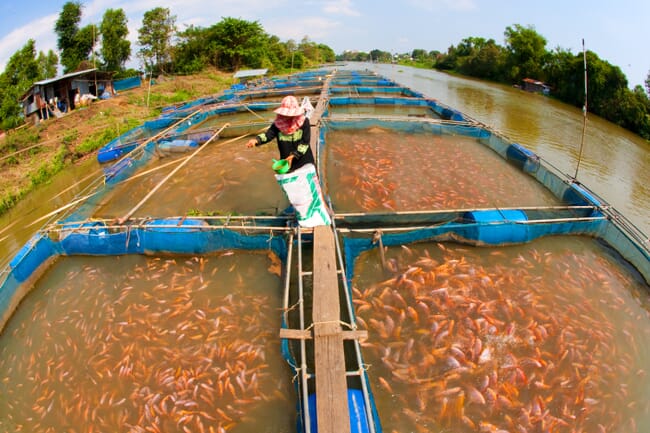
The document aims “to protect the health of life below water and ensure a sustainable future for all”.
Putting the publication into context, OIE issued a press release stating that: “Human consumption of seafood is greater than ever before. Today, aquatic animals are the main source of protein for billions of people worldwide. Additionally, demand is expected to increase as the global population approaches the 10 billion mark. Yet, animal diseases continue to threaten the sustainable growth of the aquaculture sector and, consequently, our food supply.
“As the emergence of new diseases is likely to continue, driven by factors such as climate change, unsustainable farming practices or unregulated trade, careful management of the health of aquatic animals is crucial. Most of these diseases severely impact the fisheries and aquaculture sectors, but also the open ecosystems in which these populations often live. For instance, the spread of an amphibian disease known as chytridiomycosis has damaged global biodiversity more than any other disease recorded, triggering an amphibian extinction crisis.
“The consequences do not end here. On a global scale, animal disease outbreaks cost the aquaculture industry over US$6 billion per year. Furthermore, they threaten the source of jobs and income for nearly 60 million people employed by the aquatic animal production sector.
“The World Organisation for Animal Health has been at the forefront of preserving the significant contributions of aquatic animals, supported by its international network of experts. With this, the 88th OIE General Session marks the launch of the first global strategy on aquatic animal health: an ambitious call to action to improve the sustainability of aquatic animal health systems.
“In the upcoming five years, the OIE will bring together different actors from the international community, such as OIE Members, experts, partners, decision-makers and the private sector, to coordinate joint actions in response to the challenges met by the aquatic sector. Guided by its new strategy, the OIE will continue to develop standards, build capacities, coordinate disease prevention, detection and response, and provide leadership.
“By working together, we can make our vision of improved aquatic animal health and welfare worldwide a reality. Let’s make the OIE Aquatic Animal Health Strategy a cornerstone towards more sustainable aquatic ecosystems.”



